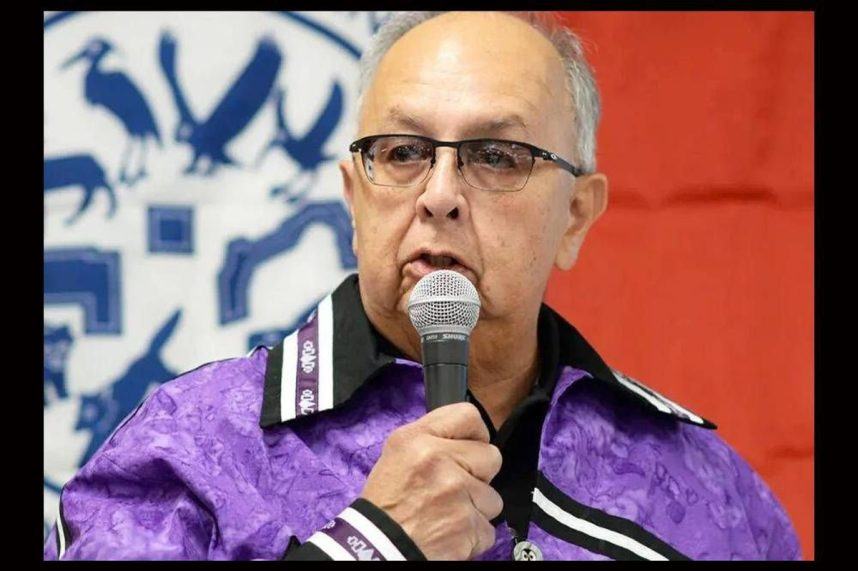
Seneca Nation Leader Expresses Frustration Over Stalled New York Gaming Compact Talks
The Seneca Nation's negotiations with New York State for a new Class III gaming compact are facing significant challenges, according to Tribal President Rickey Armstrong, who expressed disappointment with the slow progress in talks with Governor Kathy Hochul's office.

Man speaks into mic
During a commemoration of the 1842 Buffalo Treaty, Armstrong highlighted the historical context of broken promises and manipulation toward Native people, suggesting current negotiations represent another challenging chapter in the tribe's fight for economic sovereignty.
The expired 2022 compact, currently operating under an extension, requires the Seneca Nation to share 25% of slot machine revenue with the state. The tribe seeks to reduce this percentage and potentially secure approval for a fourth casino resort, maintaining their exclusive rights to operate slots and table games west of State Route 14.
A previous 20-year compact agreement announced last year stalled due to controversy over a proposed Rochester casino development. Governor Hochul's direct involvement in negotiations was delayed until her husband resigned from Delaware North, a competing gaming operator.
State Senator George Borrello suggests the governor may be intentionally prolonging negotiations, as a new agreement likely means reduced revenue for the state. The gaming landscape in New York has evolved significantly with the introduction of online sports betting and upcoming downstate casino licenses, factors that support the tribe's case for more favorable terms.
The Seneca Nation currently operates three casino resorts in upstate New York:
- Seneca Niagara Resort & Casino
- Seneca Allegany Resort & Casino
- Seneca Buffalo Creek Casino
These properties are major employers in Western New York, with thousands of workers and significant economic impact on the region.
Related Articles
Sports Betting Legalization Efforts Fall Short Across Multiple States in 2024

